Filter by
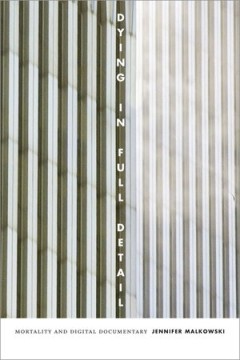
Dying in Full Detail: Mortality and Digital Documentary
In Dying in Full Detail Jennifer Malkowski explores digital media's impact on one of documentary film's greatest taboos: the recording of death. Despite technological advances that allow for the easy creation and distribution of death footage, digital media often fail to live up to their promise to reveal the world in greater fidelity. Malkowski analyzes a wide range of death footage, from feat…
- Edition
- -
- ISBN/ISSN
- 9781478091080
- Collation
- -
- Series Title
- -
- Call Number
- 791.43 MAL d
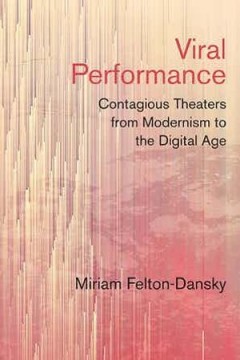
Viral Performance: Contagious Theaters from Modernism to the Digital Age
This volume proposes the viral as a means of understanding socially engaged and transmedial performance practices since the mid-20th century. It rethinks the Living Theatre’s Artaudian revolution via the lens of affect theory, brings attention to General Idea’s media-savvy performances of the 70s, explores Franco and Eva Mattes and Critical Art Ensemble, and surveys the dramaturgies and pol…
- Edition
- -
- ISBN/ISSN
- 9780810137165
- Collation
- -
- Series Title
- -
- Call Number
- 792 DAN v
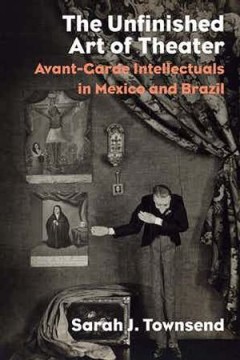
The Unfinished Art of Theater: Avant-Garde Intellectuals in Mexico and Brazil
The avant-garde posits the possibility of total rupture with the past. This book pulls back on this futuristic impulse by showing how theater became a key site for artists on the edge of capitalism to reconfigure the role of the aesthetic between 1917 and 1934. The book argues that this “unfinished art”—because of its weakness as a representative institution in Mexico and Brazil, where th…
- Edition
- -
- ISBN/ISSN
- 9780810137417
- Collation
- -
- Series Title
- -
- Call Number
- 792 TOW u
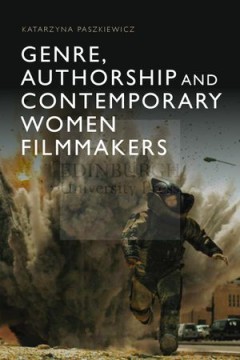
Genre, Authorship and Contemporary Women Filmmakers
Examining the significance of women’s work in popular film genres, Genre, Authorship and Contemporary Women Filmmakers sheds light on women’s contribution to genre cinema through an exploration of filmmakers like Kathryn Bigelow, Diablo Cody, Sofia Coppola and Kelly Reichard. Exploring genres as diverse as horror, the war movie, the Western, the costume biopic and the romantic comedy, the b…
- Edition
- -
- ISBN/ISSN
- 9781474425278
- Collation
- -
- Series Title
- -
- Call Number
- 791.43 PAS g
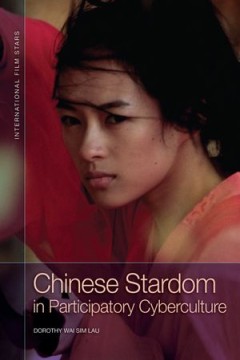
Chinese Stardom in Participatory Cyberculture
As Chinese performers have become more visible on global screens, their professional images - once the preserve of studios and agents - have been increasingly relayed and reworked by film fans. Web technology has made searching, poaching, editing, posting and sharing texts significantly easier, and by using a variety of seamless and innovative methods a new mode of personality construction has …
- Edition
- -
- ISBN/ISSN
- 9781474430357
- Collation
- -
- Series Title
- -
- Call Number
- 791.43 LAU c
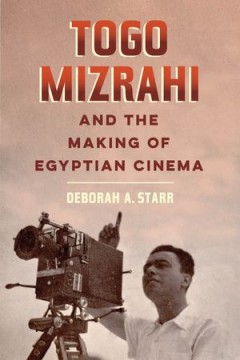
Togo Mizrahi and the Making of Egyptian Cinema
A free open access ebook is available upon publication. Learn more at www.luminosoa.org. In this book, Deborah A. Starr recuperates the work of Togo Mizrahi, a pioneer of Egyptian cinema. Mizrahi, an Egyptian Jew with Italian nationality, established himself as a prolific director of popular comedies and musicals in the 1930s and 1940s. As a studio owner and producer, Mizrahi promoted the idea …
- Edition
- -
- ISBN/ISSN
- 9780520976122
- Collation
- -
- Series Title
- -
- Call Number
- 777 STA t
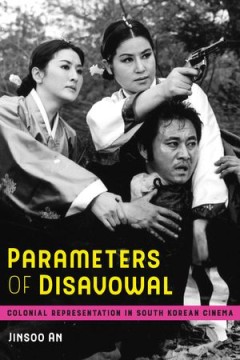
Parameters of Disavowal
The colonial experience of the early twentieth century shaped Korea’s culture and identity, leaving a troubling past that was subtly reconstructed in South Korean postcolonial cinema. Relating postcolonial discourses to a reading of Manchurian action films, kisaeng and gangster films, and revenge horror films, Parameters of Disavowal shows how filmmakers reworked, recontextualized, and erased…
- Edition
- -
- ISBN/ISSN
- 9780520295308
- Collation
- -
- Series Title
- -
- Call Number
- 791.43 JIN p
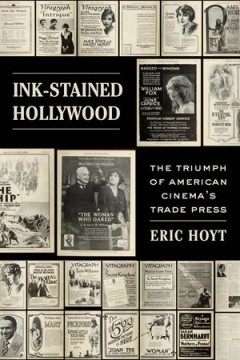
Ink-Stained Hollywood: The Triumph of American Cinema’s Trade Press
For the first half of the twentieth century, no American industry boasted a more motley and prolific trade press than the movie business—a cutthroat landscape that set the stage for battle by ink. In 1930, Martin Quigley, publisher of Exhibitors Herald, conspired with Hollywood studios to eliminate all competing trade papers, yet this attempt and each one thereafter collapsed. Exploring the c…
- Edition
- -
- ISBN/ISSN
- 9780520383708
- Collation
- -
- Series Title
- -
- Call Number
- 777 HOY i
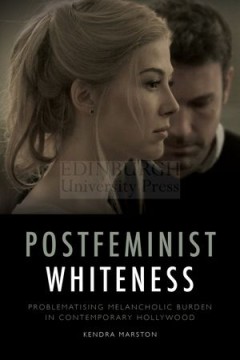
Postfeminist Whiteness: Problematising Melancholic Burden in Contemporary Hol…
Kendra Marston interrogates representations of melancholic white femininity in contemporary Hollywood cinema, arguing that the ‘melancholic white woman’ serves as a vehicle through which to explore the excesses of late capitalism and a crisis of faith in the American dream.
- Edition
- -
- ISBN/ISSN
- 9781474430296
- Collation
- -
- Series Title
- -
- Call Number
- 791.43 MAR p
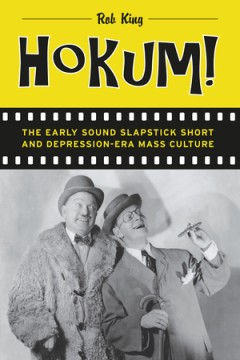
Hokum!: The Early Sound Slapstick Short and Depression-Era Mass Culture
Hokum!, the first book to take a comprehensive view of short-subject slapstick comedy in the early sound era, challenges the received wisdom that sound destroyed the slapstick tradition. Author Rob King explores the slapstick short’s Depression-era development against a backdrop of changes in film industry practice, comedic tastes, and moviegoing culture. Each chapter is grounded in case stud…
- Edition
- -
- ISBN/ISSN
- 9780520963160
- Collation
- -
- Series Title
- -
- Call Number
- 790 KIN h
 Computer Science, Information & General Works
Computer Science, Information & General Works  Philosophy & Psychology
Philosophy & Psychology  Religion
Religion  Social Sciences
Social Sciences  Language
Language  Pure Science
Pure Science  Applied Sciences
Applied Sciences  Art & Recreation
Art & Recreation  Literature
Literature  History & Geography
History & Geography